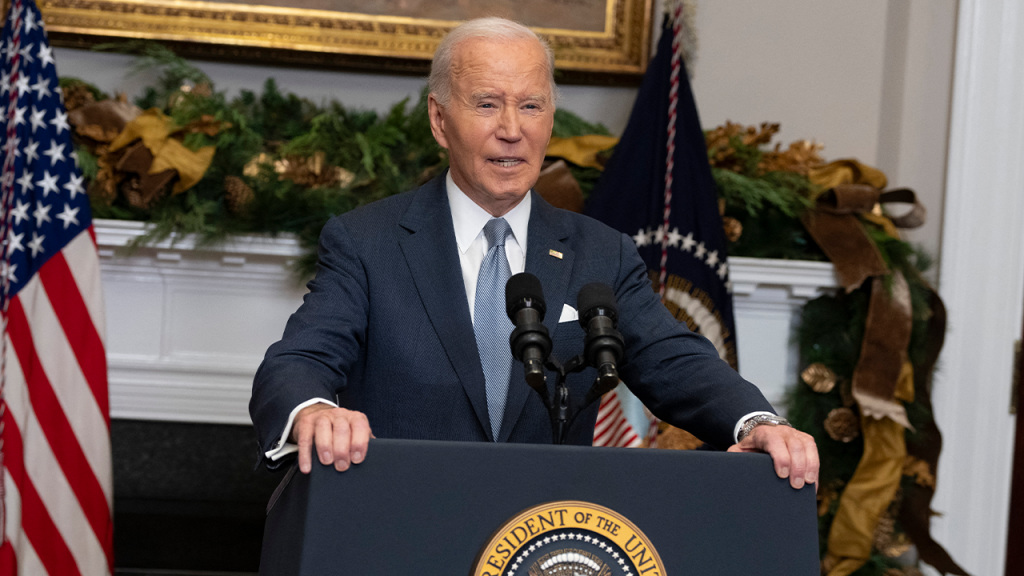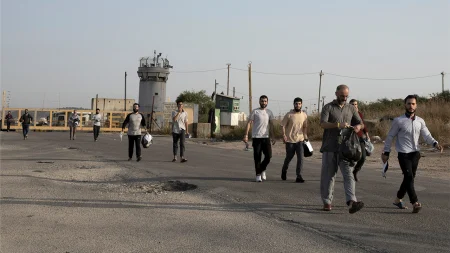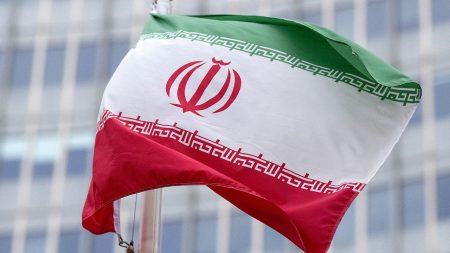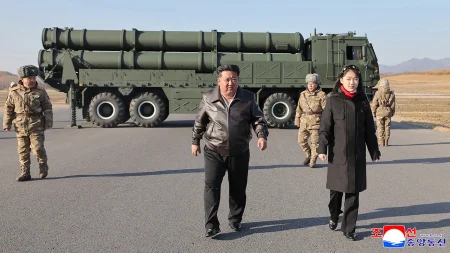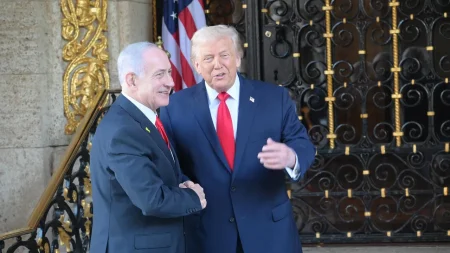The sudden collapse of Bashar al-Assad’s regime in Syria has sparked a debate over the Biden administration’s foreign policy in the region. President Biden, speaking from the White House, attributed the shift in Middle Eastern power dynamics to the “blows” inflicted by Ukraine and Israel with unwavering U.S. support. This claim, however, has drawn criticism from some analysts, who argue that the administration’s cautious approach to the Syrian conflict and its pressure on Israel to restrain its actions against Iranian-backed forces actually hindered a more decisive outcome. They contend that Israel’s independent actions, rather than U.S. policy, are primarily responsible for weakening Iran and Hezbollah, which ultimately contributed to Assad’s downfall.
Israeli Prime Minister Benjamin Netanyahu echoed this sentiment, crediting the collapse of the Syrian regime to Israeli strikes against Hamas, Hezbollah, and Iran. He acknowledged ongoing challenges but expressed confidence in Israel’s future, highlighting the strategic importance of the Golan Heights, which the Trump administration recognized as Israeli territory. This stance contrasts with the Biden administration’s reported efforts to limit Israel’s response to the Hamas attack in October 2023, raising questions about the administration’s overall strategy in the region. While a senior administration official reiterated President Biden’s assertion of U.S. influence, other experts disagree, pointing to the administration’s risk-averse approach as a limiting factor. They argue that Israel’s actions, not U.S. policy, have been the driving force in containing Iranian influence.
Critics of the Biden administration’s Middle East policy point to a history of misjudgments regarding regional dictators and radical Islamist movements, dating back to the Obama era. Former Democratic leaders like John Kerry and Nancy Pelosi engaged with Assad before his use of chemical weapons against his own people, and the administration’s handling of the Afghanistan withdrawal in 2021 has been widely criticized. These past actions, coupled with the current situation in Syria, raise concerns about the administration’s ability to effectively navigate the complex dynamics of the Middle East.
The current crisis also poses significant challenges related to the resurgence of ISIS. Senator Lindsey Graham highlighted the risk of a breakout by over 50,000 ISIS prisoners held by Kurdish forces, emphasizing the potential threat to U.S. homeland security. While the U.S. military has launched strikes against ISIS targets in Syria, the unstable political landscape creates an environment ripe for the terror group’s resurgence. The Kurdish forces, instrumental in the fight against ISIS, now face threats from Turkey and various jihadist organizations, compounding the already volatile situation.
The Kurds, who have been key U.S. allies in the fight against ISIS, now face an uncertain future. Sinam Sherkany Mohamad, a representative of the Syrian Democratic Council, emphasized the Kurds’ desire for a democratic Syria but warned of the continued threat posed by ISIS sleeper cells and the potential for the group to exploit the current instability. Incoming Congressman Abraham Hamadeh, whose parents are Syrian immigrants, stressed the importance of protecting Kurdish civilians and including them in any peace process. He also criticized the Biden administration’s leadership, suggesting that it has weakened U.S. deterrence and encouraged allies to question American reliability.
Experts on counterterrorism, such as Max Abrahms, predict a resurgence of ISIS in the new Syria. This shared concern between the U.S. and the Kurds could strengthen their alliance and justify the continued presence of American forces in the region. The Syrian Democratic Forces, backed by the U.S., have played a crucial role in combating ISIS, and their continued partnership will be essential in addressing the evolving security challenges in a post-Assad Syria. The complex interplay of regional actors, the potential for renewed conflict, and the threat of ISIS resurgence make Syria a critical and volatile arena in the ongoing struggle for stability in the Middle East.



